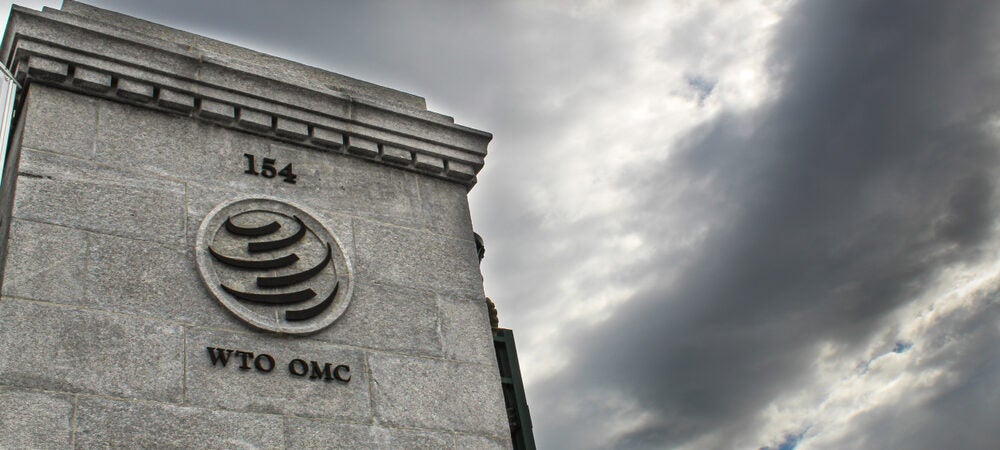The EU chose a marvelously provocative title for this panel: “Pestilence, Famine, War. . . Death? The Future of Trade”. With the use of foresight, one can see the four horsemen of the apocalypse from the WTO’s headquarters building on the shores of Lake Geneva.
Taking in order each of the four in turn:
First Horseman: Pestilence
Three years ago, almost to the day, on March 16, 2020, the WTO closed its doors due to the COVID-19 pandemic, not to fully reopen for two years. The world had not seen a disease sicken and kill as many people since 1918. Desperately needed was information, regardless of national borders. Where were the supplies of masks to come from, personal protective equipment, medical equipment, and even soap?
Trade was essential to addressing COVID. No country could be self-sufficient in essential goods, medicines, and equipment. In fact, none were. In January and February 2020, China searched the world for pulmonary ventilators for use in Wuhan. By March, Europe was doing the same for its needs. Just this one product, ventilators, needed upward of 1500 parts from some 200 suppliers located around the world.
As factories closed and transportation shut down, the WTO Secretariat supplied information notes to its 164 Members on trade measures taken, both trade-limiting and trade-facilitating. Countries began to understand that they did not have to hoard domestic supplies of food, and agricultural export restrictions began to be lifted. A new Director-General, Ngozi Okonjo-Iweala, was chosen, bringing her expertise on vaccines and the challenges of their global distribution. Using WTO’s convening power, she brought together executives from companies that made vaccines and those who understood where supplies existed and where the need for them was greatest. With time, the problems of supply eased. Vaccines, therapeutics, and other essential goods now exist in surplus quantities in most countries.
From COVID, the public learned a new term: “zoonotic disease”, referring to sicknesses that spread from animals to humans. Experts say that this will not be the last pandemic. Avian flu is now being closely watched. Millions of chickens have been killed as a preventative measure. As I write these words, two cases of avian influenza H5N1 (H5N1 bird flu) have been reported by Cambodia, killing a girl and infecting her father.
Trade proved to be resilient during the pandemic and in the period of recovery. Human ingenuity was ultimately triumphant in inventing new medicines, but only after great loss of life. I would have liked to tell you that the world trading system is better prepared for the next pandemic, and that the WTO’s members have agreed on how to pull together, with adequate processes and rules to share scarce supplies. But that is not the case. The existing WTO rule – that where an export control is imposed on a good due to short supply, provision will be made for an equitable share to other countries – was ignored and still lacks definition. The WTO members focused instead on one proposal, to circumvent vaccine intellectual property rights and obligations, with no clear indication that this was or will be a meaningful solution.
This is unfinished business for the WTO. Even though the immediate emergency has passed, and the feeling of urgency may be gone, it is still imperative to prepare for the future. What is in hand at present is a stated recognition by WTO members of some aspects of what a better world order might look like for trade and health, in a document labeled “Ministerial Declaration on the WTO Response to the COVID-19 Pandemic and Preparedness for Future Pandemics”. The agreed text is careful to avoid any new obligations for members. By its terms, a stocktaking is due to take place in December 2024. This is not enough.
2023-03-13wolffAlan Wm. Wolff is a distinguished visiting fellow at the Peterson Institute for International Economics.
To read the full remarks, please click here.

